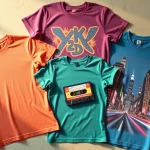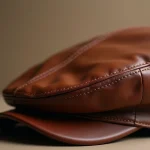Overview of Textile Innovations in Women’s Fashion
In recent years, innovative textiles have significantly shaped the landscape of women’s fashion. These pioneering materials have not only transformed design aesthetics but have also introduced new functionality and sustainability into fashion. The importance of these pioneering textiles lies in their ability to offer unique properties, such as enhanced comfort, adaptability to different environments, and even health monitoring capabilities.
Currently, the UK sees a surge in women’s fashion trends that embrace these innovations. For instance, materials that integrate technology, such as smart fabrics that respond to environmental changes, are becoming increasingly popular. Textile developments in areas like recycled polyester and organic fabrics are leading the charge towards a more sustainable fashion industry.
Also to read : Mastering Elegance: The Definitive Handbook for Selecting Jewelry for Formal Events in the UK
Key players in this field are numerous, with both established and emerging brands making significant strides. Companies like Burberry and Stella McCartney are known for their textile innovations, paving the way for the industry. Additionally, smaller startups are also contributing by developing niche products that cater to specific consumer needs or environmental goals. This bustling landscape of innovation highlights the dynamic nature of women’s fashion and the vital role of textiles in driving the industry forward.
Key Textile Breakthroughs and Their Impacts
Textile breakthroughs are redefining the fashion landscape, primarily through sustainable materials and smart textiles. These innovative textiles are departing from traditional fabrics in both composition and function. Sustainable materials such as tencel and organic cotton are receiving accolades for their low environmental footprint and ethical sourcing. Companies are turning to recycled polyester, contributing to waste reduction while maintaining quality.
Also to discover : Revamp Your Summer Fashion: Innovative Ways to Transform Timeless Chelsea Boots
Smart textiles introduce a new layer of interactivity to fashion. These include fabrics that adjust to temperature changes or even monitor health metrics, seamlessly integrating technology into daily wear. The appeal lies in their dual function: style and utility coalesce.
These advancements significantly impact traditional design and manufacturing processes. Previously linear methods are evolving to accommodate circular economies and adaptive technologies. The shift demands a rethink in production techniques, focusing more on design sustainability and technical adaptability.
Brands like Adidas and Levi’s are exemplary case studies leveraging these textile innovations. Adidas’ partnership in developing Parley Ocean Plastic sportswear exemplifies environmental commitment, while Levi’s Water<Less® techniques address water conservation. Such initiatives underscore the importance and influence of textile innovations in the contemporary fashion narrative.
Leading Brands and Designers in UK Fashion
In the heart of the UK, leading fashion brands and designers are pushing the boundaries of textile innovation, elevating women’s fashion to new heights. These trailblazers are not just redefining style but are also committed to sustainability and ethical practices.
Case Study: Brand A
Brand A, a beacon of modern textile use, leverages innovative textiles to create eco-conscious collections. Their cutting-edge approach has significantly impacted both sales and customer reception, highlighting a shift towards garments that blend style with sustainability.
Through integrating sustainable practices, such as using recycled fibers and low-impact dyes, they have crafted a narrative that resonates with today’s environmentally aware consumer. The brand’s commitment has translated into robust market growth and a loyal customer base, reinforcing the importance of textile sustainability.
Case Study: Designer B
Designer B stands out for introducing innovative collections that captivate with both aesthetics and ethics. Their work, celebrated for its originality and environmental mindfulness, has garnered various accolades, securing a strong market presence.
Emerging Brands
A wave of emerging brands in the UK is setting bold, new trends through unique textile innovations. By embracing a fusion of technology and sustainability, these newcomers are capturing the imagination, transforming how consumers interact with fashion today.
The Role of Sustainability in Textile Innovation
In today’s fashion landscape, sustainable textiles are pivotal. They redefine consumer expectations by offering eco-friendly options without sacrificing style. This shift is a response to growing awareness of fashion’s environmental footprint and the demand for textile sustainability.
The importance of sustainable fashion lies in its capability to mitigate environmental harm. Innovations such as biodegradable fabrics or materials made from agricultural waste are reshaping how designers and manufacturers approach their craft. Consumers are increasingly favouring these options, as they align with personal values promoting environmental impact reduction.
Several companies are setting the benchmark in sustainable textiles. From leveraging innovative dyes with minimal environmental footprints to committing to low-impact manufacturing processes, these brands are leaders in sustainable practices. Furthermore, many have adopted circular fashion models, ensuring products are part of a continuous lifecycle, reducing waste significantly.
Consumer preferences are visibly shifting. There’s a growing inclination for garments that are not just trendy but also eco-conscious. This shift supports the forecast that sustainable fashion is not a passing trend but a fundamental industry change, guiding how textile innovations are embraced.
Future Trends in Women’s Fashion and Textiles
In the ever-evolving world of women’s fashion, the next 5-10 years promise an exciting array of textile innovations. As sustainability and technology increasingly intersect, future trends are likely to reflect advancements in these areas, profoundly influencing fashion’s trajectory.
Predictions suggest that textiles will become even more functional, with fabrics incorporating advanced technological elements such as solar-charging capabilities and self-cleaning properties. These ‘smart’ textiles will not only make garments more adaptable to different environments but also enhance user convenience. The domain of wearable tech might entirely redefine personal clothing, integrating seamlessly into daily wear without sacrificing style.
Moreover, the focus on sustainability continues to gain momentum, pushing textile innovations to new frontiers. Expect breakthroughs in biodegradable fabrics and increased use of plant-based materials, reducing the industry’s reliance on plastics and fostering an eco-friendly ethos.
As these trends unfold, the role of technology is undeniable. From AI-enhanced design processes to blockchain in sustainable supply chains, technology is poised to revolutionise the women’s fashion outlook, blending aesthetics with functionality and ethics.










